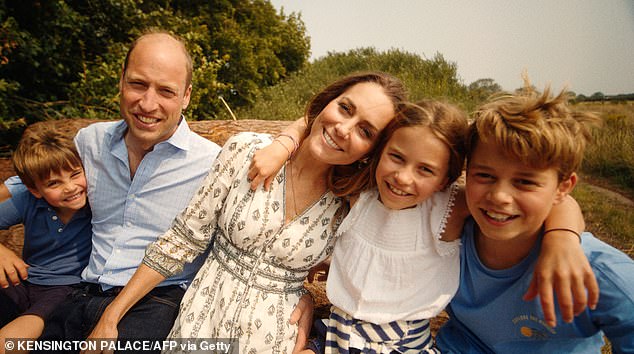Like many of you, I watched the video released by Kensington Palace yesterday, happy that Kate Middleton’s chemotherapy was over.
And at the end, I was crying.
It was particularly poignant for me because, five years ago, I was in almost exactly the same situation as our Princess of Wales.
I was 39 when I was diagnosed with bowel cancer in 2019. Like Kate, 42, I also have three children, who were 11, 7 and 4 at the time – around the same age as George, Charlotte and Louis.
Like Kate, I was overwhelmed with relief and triumph when, in late 2020, after chemotherapy and multiple surgeries, I was declared cancer-free.
The Princess of Wales yesterday shared an intimate glimpse into her family life in a touching clip in which she announced that she has “finally completed her chemotherapy treatment”.
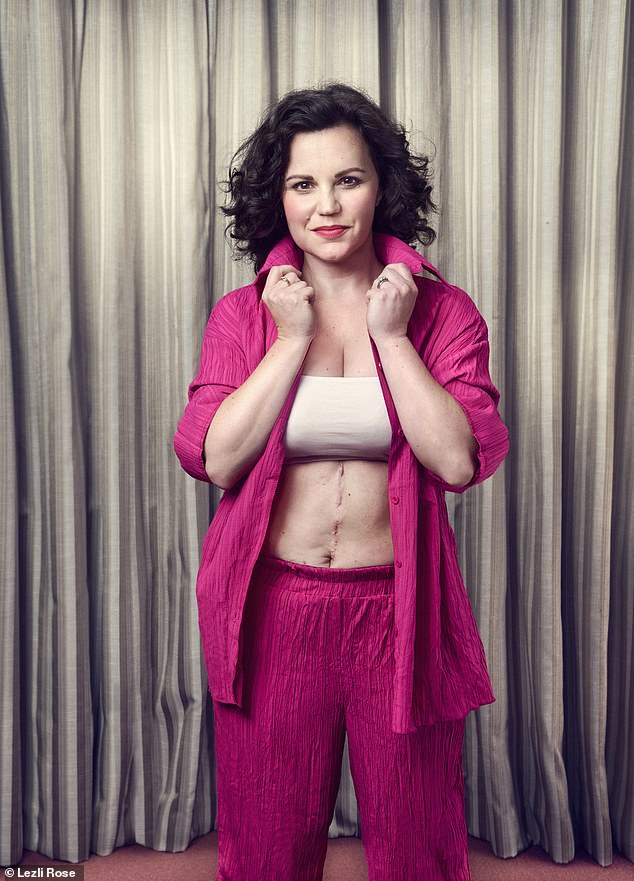
Dr Kaye was 39 when she was diagnosed with bowel cancer in 2019. Like Kate, 42, she also has three children, who were aged 11, 7 and 4 at the time – around the same age as George, Charlotte and Louis.
In the clip, we saw a happy family, with three children who seemed like most young people: carefree and content.
But I know the truth is that over the past year, the young royals will likely have experienced situations that we hope no child ever has to consider.
For parents with cancer, managing their children’s expectations, questions and comments is one of the greatest challenges of this devastating disease.
And five years later, after several more procedures, I know that the challenge doesn’t end when the first batch of treatment ends.
As a GP, patient and parent, I am often asked for advice on how to deal with this situation. The truth is, there is no “right” way to deal with cancer. There is only the best way for you, whether you are Kate and William or any other family member.
But there are some lessons I’ve learned along the way.
First of all, in general, honesty is the best policy.
Of course, the young royals have had no choice but to be open with their children, given the media attention, but I think this is for the best.
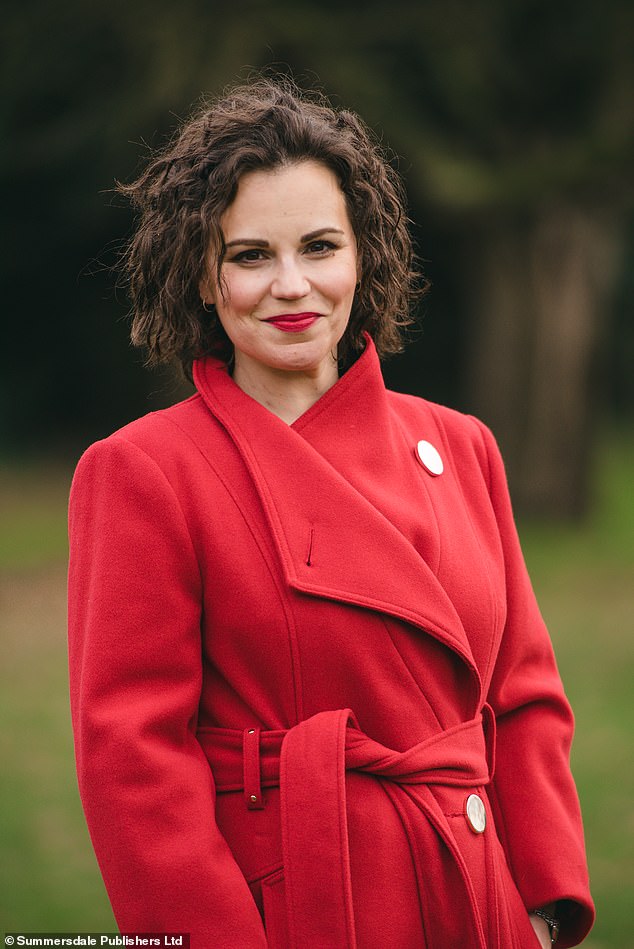
Dr Kaye: ‘As a GP, patient and parent, I am often asked for advice on how to deal with this situation. The truth is, there is no “right” way to deal with cancer. There is only the best way for you, whether you are Kate and William or any other family member.’
My husband and I were committed to being as honest as possible from the beginning. When I was first diagnosed, my mother was with me in the hospital.
I called my husband to tell him and asked him not to tell the children yet: I wanted to tell them together.
I called my best friend, a child psychotherapist, from the hospital locker room to ask what to do.
I begged her not to react like my friend at that moment and to only offer me professional advice.
She advised me to tell the truth.
The reality is that children will know something is going on; they are very intuitive and excellent at picking up on things around the house.
The two older ones wanted to know if I was going to die. Even then I told them the truth: that the doctors and I would do everything possible to prevent that from happening.
But I was also sure to never answer with a categorical no.
You can change exactly what you say depending on the age of your children – after all, the questions asked by a four-year-old will be very different from those asked by an 11-year-old.
For example, I explained to my two youngest children that cancer was a ball of bad cells in my stomach that was harming me and that the doctors were going to remove it.
I told them that surgery and chemotherapy meant I had to reserve all my energy for getting better and therefore my brain and body might be slower than usual.
I always gave them hope, telling them that the doctors were going to destroy my cancer and that they would give me powerful medications to help me cope with the feeling of illness.
There is a tendency to think that, for those around you, the end of surgery and chemotherapy, and even being declared cancer-free, disappears with anxiety and panic.
The journey does not end there, it is just the beginning of a new part of the story.
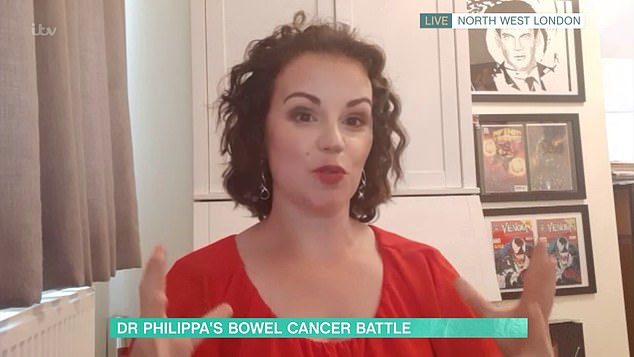
Dr. Kaye: “You can change exactly what you say depending on the age of your children – after all, the questions a four-year-old asks will be very different from those of an 11-year-old.”
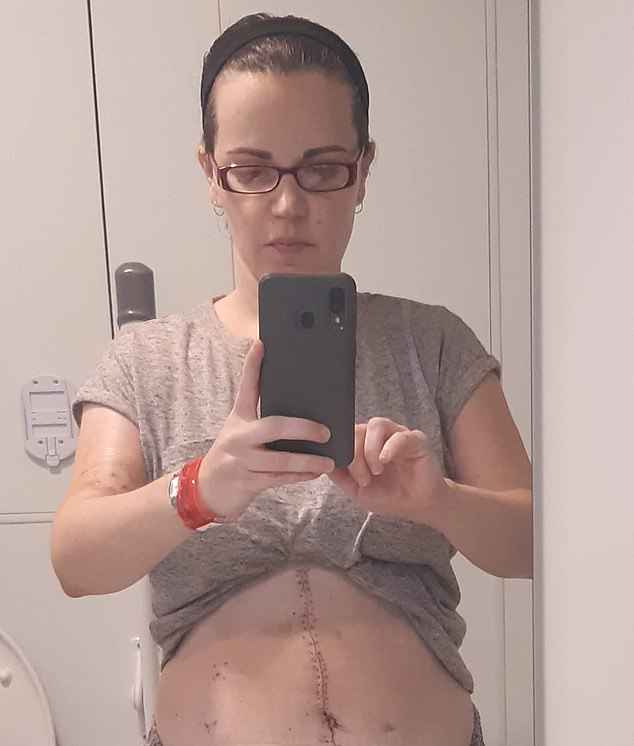
Dr. Kaye: “There’s a tendency to think that, for those around you, the end of surgery and chemotherapy, and even being declared cancer-free, is passed over with anxiety and panic. The journey doesn’t end there, it’s just the beginning of a new part of the story.” Pictured: Dr. Kaye after treatment
For me it meant—and still means—turning off the “scan anxiety” every time I had a checkup, which triggered the trauma of my initial diagnosis.
I felt grateful to be here and relieved not to be in treatment, but I also felt like I had a sword of Damocles hanging over my head.
As for my children, I have witnessed some illuminating changes in their behavior. Perhaps it was simply due to your kindness, but I am concerned that many of their new actions may have been motivated by an underlying sense of anxiety.
For example, I am often asked if I have a special disabled key to open public toilets, as they know the impact of my surgery means I can’t wait.
They ask me if I have my calorie powder supplements or snacks when we go out, and my bowels are not working well.
Still, they recognize when I’m tired and try to get me to rest, even when I don’t want to. I try to see all of these surprisingly empathetic traits as positives that cancer has brought them.
And then there are the promises you make and the ones you don’t.
After my diagnosis, the children asked me to promise that I would not die or that I would come home from the hospital after surgery.
I chose my words carefully, assuring them that I was doing everything I could to get healthy and stay that way.
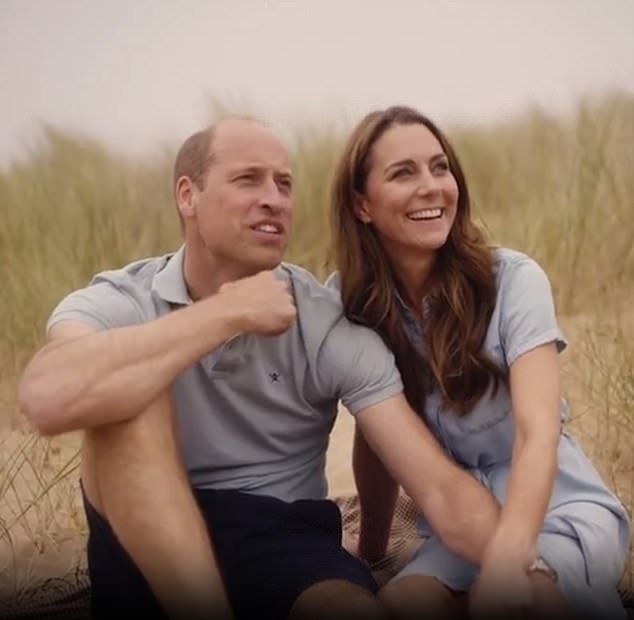
The Princess of Wales publicly announced five months ago that she had been diagnosed with cancer and was undergoing “preventive” chemotherapy.
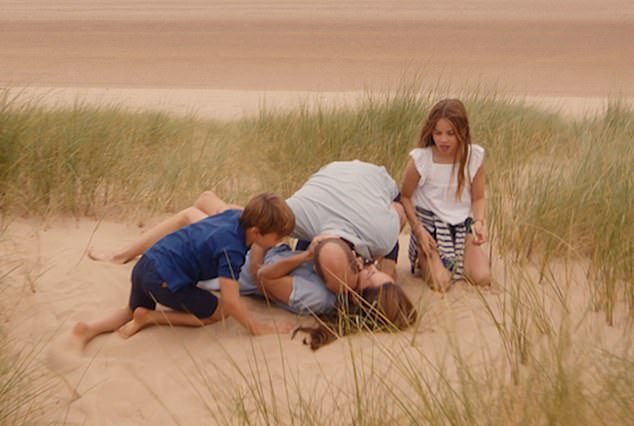
The video offered a candid look at the lives of the Prince and Princess of Wales with their three children, Prince George, 11, Princess Charlotte, nine, and Prince Louis, six.
But I stopped making promises. I don’t promise anymore. I will be present for the children’s pick up from school or assembly as there was a time when a fever meant I had to go to the hospital or another medical situation. Instead, I tell them I will do the best I can.
One question my kids have asked me a lot is whether I’m scared or not.
I have always been open about my fears. Telling the truth meant that they felt able to be honest about their own worries; they could tell me when they were afraid too.
I couldn’t fix it, no matter how much I wanted to, but I could simply be with them in it, and that seemed like a powerful thing to do.
The same goes for anger. They were angry because I was sick and, to be honest, I was too.
I let my 11-year-old say every bad word possible about cancer, which sent him into fits of laughter.
They wrote their feelings about cancer on a pile of cheap plates and we smashed them into a thousand pieces.
Feelings are neither good nor bad, they are just feelings and we need to express them and talk about them.
I hope I gave you what you needed.
Today, five years after my diagnosis, I am happy to say that I am well and currently cancer-free.
As the princess said, I too spend a lot of time these days feeling grateful for the “simple but important things in life.”
‘Of simply loving and being loved.’
I’m not the same person I was before I had cancer, and my family is not the same either.
They may be more worried about me, but they and I are also stronger and recognize the joy of time spent together (in between the expected sibling fights).
We are all different from how we were before and we always will be. And now I realize that that is okay.

